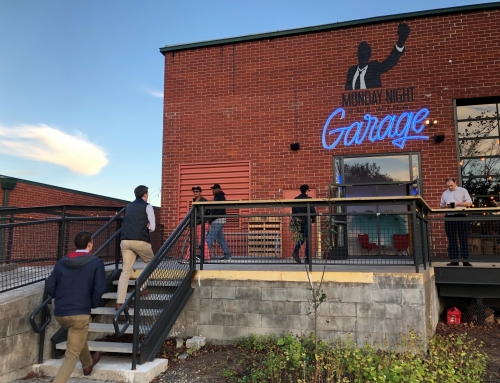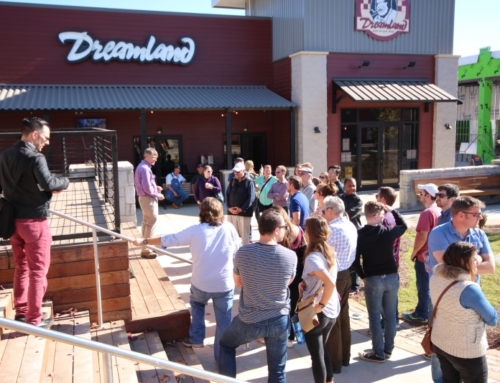TSW-designed project featured in AJC
The Atlanta Journal-Constitution recently featured Tunnell-Spangler-Walsh-designed project McDaniel Glen.
New approach to housing complex
Paul Donsky – Staff
Thursday, July 7, 2005The McDaniel Glenn public housing development in Mechanicsville, just south of downtown, has only a few weeks to live.
The sprawling, 41-acre complex of low-slung brick apartments will be demolished in August to make way for a gleaming, $144 million urban village of condos, townhomes and live/work lofts that promise to transform the long-troubled neighborhood just southwest of downtown.
McDaniel Glenn residents have been moving out since last year, when they were notified of the plans.
Once a thriving middle-class community, Mechanicsville fell on hard times in recent decades, becoming a dangerous area overrun with crime and drugs.
Blocks of dark red-brick apartments, separated by dusty patches of grass, are stained with graffiti. Many windows are broken.
“There is a lot of shouting and drug selling,” said Everline Brown, who’s called McDaniel Glenn home for 31 years.
Brown said she was looking forward to leaving because of her three grandchildren, whom she’s raising.
“They don’t have to be around all the drugs and fighting going on,” Brown said. “There’s too much crime.”
Residents have the option of moving to another city public housing development or, if they qualify, use a Section 8 voucher to rent apartments or houses.
Ambitious new design
At McDaniel Glenn, most of the development’s 293 units are boarded up, awaiting demolition.
An artist’s rendering of the new McDaniel Glenn shows a sleek streetscape that looks like a combination of New Orleans’ French Quarter and Midtown Atlanta.
On the left side of the street are two three-story apartment buildings with storefronts on the ground floor and second-floor balconies. On the right is a taller, modern-looking building with sharp angles and lots of glass.
Most of the project is being funded privately.
The Atlanta Housing Authority is using about $20 million of federal Hope VI grant funds to subsidize the rent of a portion of the new homes to make them affordable to low-income residents.
Former McDaniel Glenn residents will have the chance to move back to the new complex when it is completed in four years. About 38 percent, or 320, of the 833 new units will be reserved for low-income families who qualify for public housing assistance.
But the new McDaniel Glenn will have much more strict entrance policies than the old property. Residents with certain criminal backgrounds, for instance, will not be allowed back in.
Change in system
Atlanta Housing Authority officials are systematically reshaping the city’s public housing stock.
The idea, they say, is to remove the public housing developments of old that concentrated large numbers of low-income families.
The neighborhoods became isolated, dysfunctional pockets plagued by crime and drugs.
The housing authority already has redeveloped notorious developments like Techwood Homes near Georgia Tech’s campus and East Lake Meadows, an east Atlanta community so violent it was known as “Little Vietnam.”
Mixed-income communities are being built in their place. Private companies, not the AHA, are building and managing the properties, including McDaniel Glenn.
“What we wanted to do is . . . create a better social environment,” said Renee Glover, executive director of the AHA. “Then we can provide for the families who are in need of the program a real opportunity, thereby allowing families to tap into their God-given potential so they can achieve the American dream.”
Many residents are glad for the opportunity to get out of the public housing development.
But some say they’ve had trouble finding Section 8 housing and fear they may have to leave the Mechanicsville neighborhood, which they like because it’s close to downtown and Grady Memorial Hospital.
The redevelopment is sure to fundamentally change the neighborhood.
Some changes already are taking place. New sophisticated-looking condos and homes are being built in the area, a sign that a turnaround is under way.
Neighborhood leaders hope that the renaissance will be put into fast-forward when the public housing complex is demolished.





